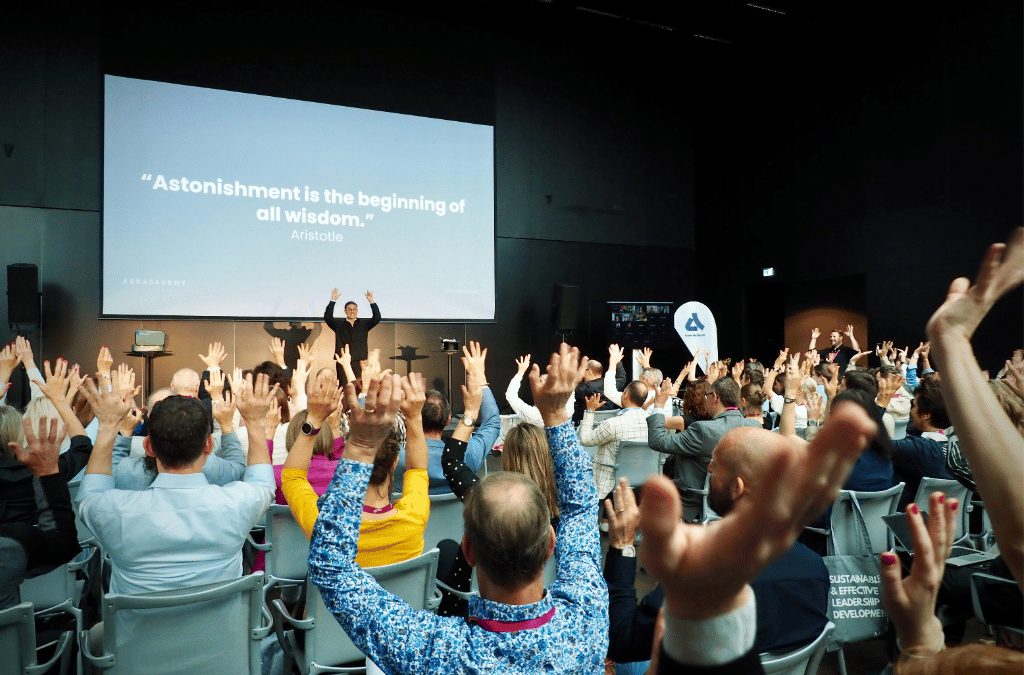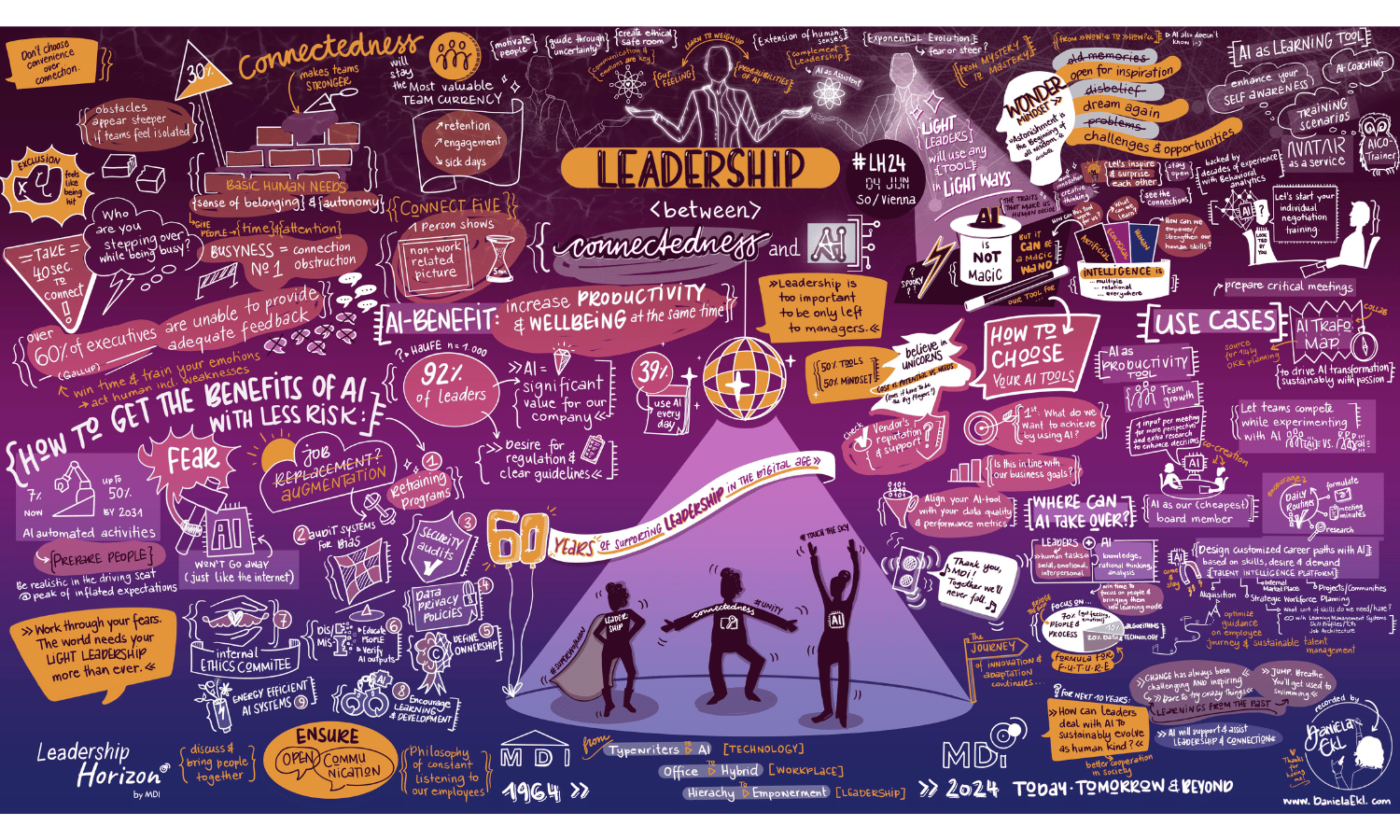
From Typewriters to AI: Leadership Over the Past 60 Years
Photo credits: Jenny Theolin
From Typewriters to AI: Leadership Over the Past 60 Years
This was our Leadership Horizon Conference of 2024! Click here and immerse yourself in the Highlights.
From Typewriters to AI: The Evolution of Technology and Leadership Over the Past 60 Years
As we stand on the brink of a new era in technology and leadership, it’s crucial to reflect on the journey that has brought us here. Today, personal computers and hybrid work models are standard, but the path to this reality has been filled with remarkable innovations and visionary leaders.
Celebrating 60 years of MDI’s impact on shaping and training leaders, we look back at the extraordinary changes in both technology and leadership since 1964. As Isaac Newton said, “If I have seen further, it is by standing on the shoulders of giants.” Let’s embark on a journey through time to appreciate how far we’ve come.
The Birth of the Digital Age
In 1964, while The Beatles’ “A Hard Day’s Night” topped the charts, Texas Instruments introduced the integrated circuit, marking the dawn of a new era in electronics. Baby Boomers began to integrate these new technologies into the workplace, setting the stage for the digital revolution.
The creation of ARPANET, the precursor to the internet, laid the foundation for a connected world. The 1970s witnessed dynamic shifts in leadership styles, transforming corporate culture. Personal computing emerged with Microsoft and Apple at the forefront, and by 1977, the introduction of the Apple II was revolutionizing both offices and homes.

Technological and Cultural Expansion
The 1980s brought mobility and connectivity into the spotlight with innovations like the Osborne 1 and Motorola’s first mobile phone. The fall of the Berlin Wall in 1989 and the standardization of TCP/IP protocols in 1983 heralded a truly interconnected world.
Cultural phenomena such as Star Wars captivated millions, redefining the nature of storytelling. As the new millennium approached, Google and Wikipedia transformed our access to and interaction with information. Pop culture evolved with “The Simpsons,” offering a satirical view of American life through the antics of a yellow cartoon family.
The Digital and Data Revolution
The introduction of the iPhone and iPad seamlessly integrated technology into daily life, showcasing the adaptability and drive of Millennials stepping into leadership roles. Platforms like TikTok are redefining media consumption, fueled by the creativity and engagement of a new generation.
Technologies like Tesla’s Autopilot and Google’s advances in quantum computing hint at the incredible possibilities of the future. Contemporary leadership now embraces global movements for climate action, reflecting an evolving focus on sustainability and social responsibility.
Embracing the New Era
As we adapt to the ever-changing landscape of our world, the past six decades serve as a testament to the continuous journey of innovation and leadership. Looking ahead, it’s clear that the evolution of technology and leadership will persist, driven by creativity, adaptability, and a vision for a better future.
As we celebrate the achievements of the past, we eagerly anticipate the exciting advancements that lie ahead, knowing that the journey of innovation and leadership continues.

Raphaela Pouzar
Team Assistant
Raphaela Pouzar, a Bachelor of Business Administration student at IMC Krems, works at MDI as a marketing assistant alongside her studies. Her responsibilities include writing blog entries and creating videos in both English and German for our site.














